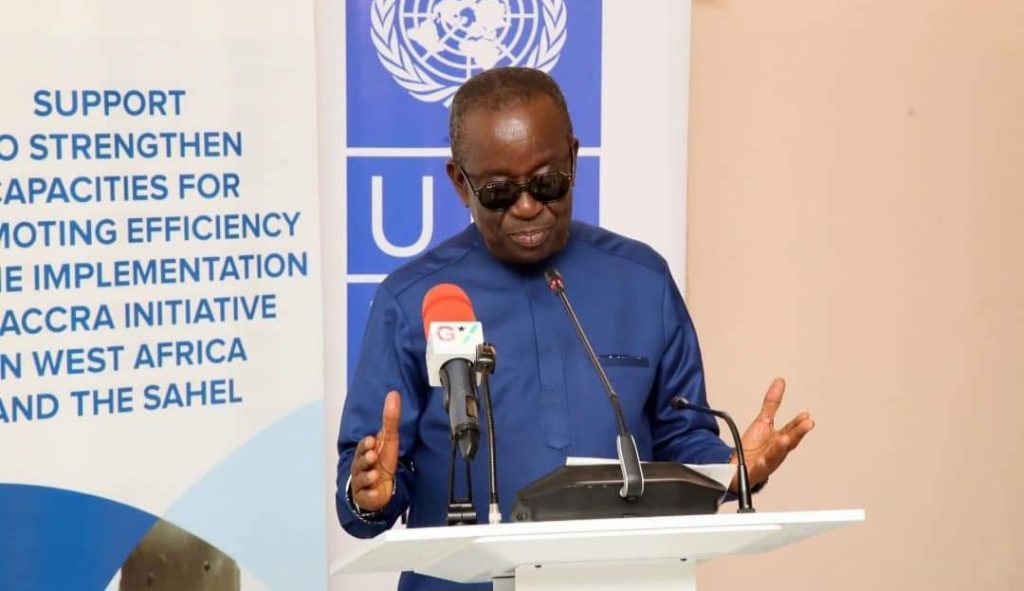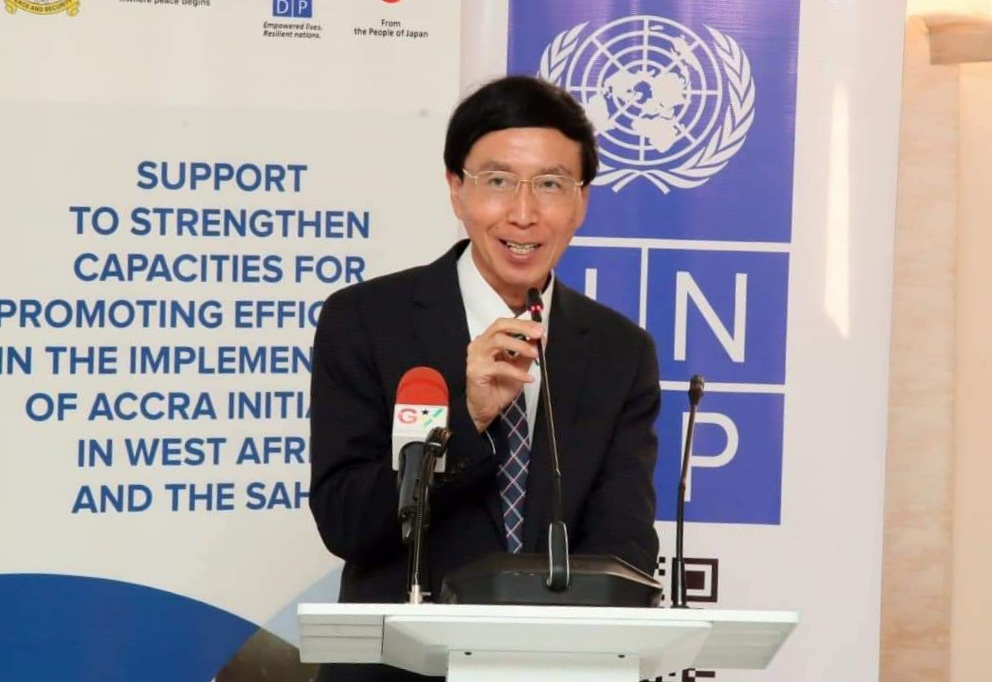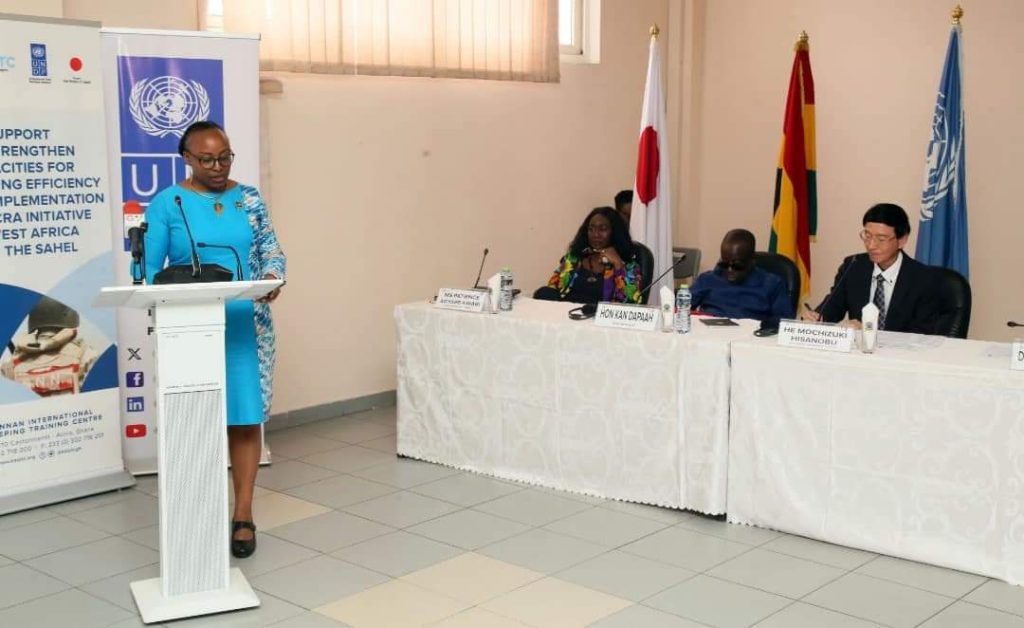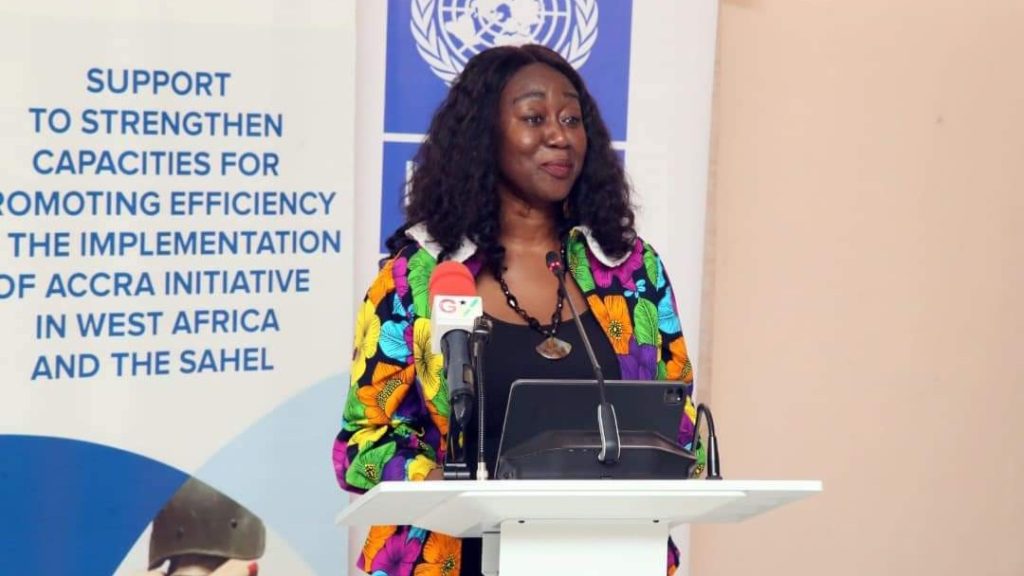By James Amoh Junior
Accra, May 14, GNA – The Kofi Annan International Peacekeeping Training Centre (KAIPTC), the Government of Japan, and the United Nations Development Programme (UNDP), have partnered to ensure the effective implementation of the Accra Initiative (AI) in West Africa and the Sahel.
This is under a one-year project, being undertaken by the KAIPTC, titled, “Support to strengthen capacities for promoting efficiency in the implementation of the Accra Initiative (AI) in West Africa and the Sahel.”
The initiative comes as the Sahel region faces a worsening security situation, marked by a rise in terrorism, civilian casualties, and displacement.
The 2023 Global Terrorism Index identifies the Sahel as the epicenter of global terrorism, with nearly half of all terror-related deaths originating there.
Up to 47 per cent of global deaths from terrorism have occurred in the Sahel region.
Launched in 2017 by Ghana during its Chairmanship of ECOWAS, the Accra Initiative aims to prevent the spillover of terrorism from the Sahel into coastal West African nations.
Through intelligence-sharing and coordinated border security, the initiative seeks to address transnational organized crime and violent extremism.
The Project, therefore, aims to contribute to strengthening the capacity and collaboration on the Accra Initiative among its member states and with civil society to be able to tackle peace and security threats, including violent extremism in the region, while promoting community resilience.
The KAIPTC-led project will run on three interlinked project components research, dialogue, and capacity development.
To address the evolving security threats faced by countries south of Mali, including the members of the Accra Initiative, this project aims to strengthen the skills and knowledge of state and non-state actors involved in the initiative.

It also seeks to build community resilience to reduce threats to peace and security while encouraging wider civilian and community involvement by building trust to create safer and more secure communities.
Mr Albert Kan-Dapaah, Minister of National Security, speaking at the launch of the Project, said the terrorist situation in West Africa continued to threaten its peace, and that some drastic measures were needed to nip the threats posed by terrorism in the bud to safeguard sub-regional peace.
The worrying phenomenon, he said, made the West African sub-region a hub of terrorist groups as such attacks were drifting towards coastal West Africa.
The National Security Minister said terrorism had become a major issue confronting the 21st century in the sub-region, which had led to huge investments in security to deal with the threats.
Mr Hisanobu Mochizuki, Ambassador of Japan to Ghana, said Japan recognized the urgency of the situation in the Sahel.

In response to this deteriorating situation, he said the Prime Minister of Japan Fumio Kishida announced last year during a visit to Ghana that Japan would provide approximately USD 500 million over the next three years to contribute to peace and stability as well as promote sustainable growth in the Sahel region and neighbouring Gulf of Guinea coastal countries.
“I am delighted that this project represents our long-lasting firm partnership with the UNDP and the KAIPTC, building upon our vital collaboration in the past to enhance security in West Africa,” Amb. Mochizuk, said.
Dr Angela Lusigi, UNDP Ghana Resident Representative, said the escalating violence in the Sahel had resulted in devastating consequences, including loss of civilian lives, displacement, and humanitarian crises of alarming proportions.
She said it was imperative to recognise that the threat of violent extremism knew no national boundaries.

The UNDP Representative commended the concerted action taken by ECOWAS in setting up the Accra Initiative as it represented a crucial step towards enhancing security and stability in the region by preventing the spillover of terrorism and combating transnational organized crime and violent extremism.
The Accra Initiative, she said, faced significant challenges, and that “we need to address gaps in information regarding its structure, decision-making processes, and civilian involvement.”
Dr Lusigi said, “The ambition is high and the scale of the task at hand demands additional financial resources and robust support for all member states: Ghana, Benin, Togo, Cote d’Ivoire, Mali, Burkina Faso, Niger, and Nigeria.”
Mrs Patience Agyare-Kwabi, Director of Women, Youth Peace & Security Institute, KAIPTC, said the proliferation of transnational organized criminal groups, recurrent coups, and the increasing expansion of violent extremist groups across contiguous borders in West Africa and the Sahel presented an imminent threat to peace and security in the region.

The casualties caused by violent extremists in the Sahel, she said, had increased fourfold since 2016 with youth and women being among the most affected by the situation.
Our experience with the recently ended project on violent extremism and small arms control indicates that not many people are aware of the activities of the Accra Initiative, though they were certainly excited to learn about it,” she said.
The WYPSI Director noted that it was within that framework that the current project aimed to strengthen the capacities of seven signatory states — Ghana, Benin, Togo, Cote d’Ivoire, Mali, Burkina Faso, and Niger — alongside Nigeria as an observer state.
GNA